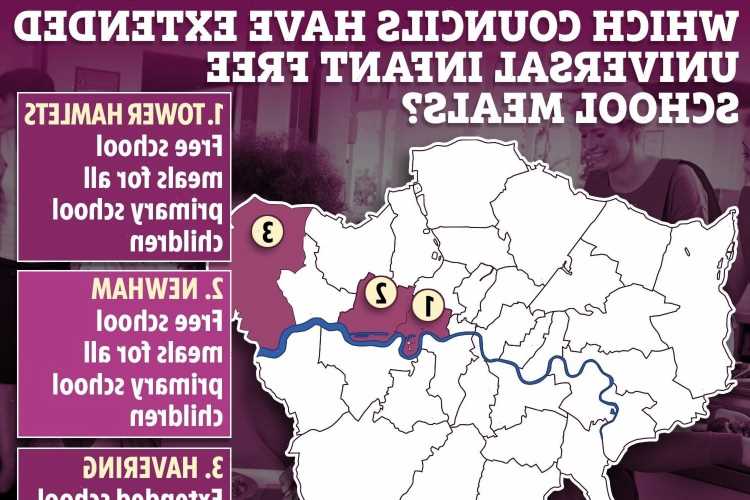ALL children aged seven years old or under are eligible for free school meals if they attend an English state school.
Universal infant free school meals are available for children in reception, year one and two at English state schools – regardless of their parents’ income.
Councils are given money by government to fund the scheme, which was introduced in 2014.
A handful of local authorities have extended the offer to include older children, a Sun Investigation found.
But they are in the minority, and whether you get any extra help depends on where in the country your children go to school.
How does universal infant free school meals work?
All infant age school children are automatically eligible for the scheme – parents don’t have to apply.
But, if you claim certain benefits that will allow your children to claim free meals beyond year two, you should still let the school know.
This is because the government gives the school extra cash for each pupil who is eligible for means-tested meals – this is called the pupil premium.
That's worth up to £1,345 per student, which can then be spent on things like improving teaching, breakfast clubs and school trips.
Your free school meals entitlement is decided by the local authority area where your child attends school, not where you live.
To check which council area is in charge of free school meals for your child, put the schools' postcode into this online search tool.
Which councils have extended universal free school meals?
Most councils just offer the minimum required under the scheme by providing a free lunch to children in infant years.
But local authorities have the power to widen eligibility by topping up the special funding with cash from elsewhere in their budgets.
The Sun checked more than 30 councils in the UK and found that only three offer extra provision.
In Newham, east London, every primary school aged child has the opportunity to have a free school lunch.
This is the case even if their parents or carers are not in receipt of one of the qualifying benefits for free school meals.
Another east London council, Tower Hamlets, also funds free school meals for all primary school children up to year six.
In Havering, the council says that the children whose parents receive certain benefits can continue to receive free school meals after year two, even if their financial situation has changed.
But you must have already signed up for the pupil premium in order to continue receiving the benefit.
What are benefits-eligible free school meals?
If your child is in year three or above, and their school hasn't extended the universal infant free school meals, you might still be able to get help.
Your child may be able to get free school meals if you get any of the following benefits:
- Income Support
- Income-based Jobseeker’s Allowance
- Income-related Employment and Support Allowance
- Support under Part VI of the Immigration and Asylum Act 1999
- The guaranteed element of Pension Credit
- Child Tax Credit (provided you’re not also entitled to Working Tax Credit and have an annual gross income of no more than £16,190)
- Working Tax Credit run-on – paid for 4 weeks after you stop qualifying for Working Tax Credit
- Universal Credit – if you apply on or after 1 April 2018 your household income must be less than £7,400 a year (after tax and not including any benefits you get)
Older children who get paid these benefits directly, instead of through a parent or guardian, can also get free school meals.
Your child may also get free school meals if you get any of these benefits and they attend nursery.
We pay for your stories!
Do you have a story for The Sun Online Money team?
Email us at [email protected]
Source: Read Full Article






